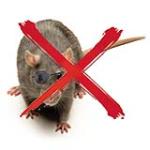An increasing focus on encouraging domestic consumption, potentiated by upcoming new and transformative pesticides registration standards, suggests robust opportunities for the pest-control sector in China. China’s reorientation from an industrial/export-reliant economy to a service/domestic-consumption one is advancing rapidly, with The Economist recently reporting that the country’s relatively small service-sector output is expected to exceed the county’s mighty industrial production within this year.
According to Kline’s soon to be published Global Professional Pest Management Markets for Pesticides: Market Analysis and Opportunities, total non-agricultural pest control service sales in China in 2012 alone are estimated at CNY 3 billion to CNY 4 billion (USD 476 million to USD 635 million), with pesticides sales expected to grow annually by 6.7%.
With a view to improving product quality, public health, and environmental safety, China’s Pesticide Registration Law, overseen by China’s Institute for the Control of Agrochemicals, Ministry of Agriculture (ICAMA) is continuously imposing stricter standards with upgraded implementations expected in the second quarter of 2013. The impending directives with potentially the most impact concern the withdrawal of temporary pesticide registration certificates, and the mandating of formal pesticide registration certificates, which requires up to CNY 1 million (USD 158,647) per new product (a five-fold cost increase) and a certification period of up to two years.
The effect of this will lead to market consolidations or the shutting down of smaller pesticide control operators (PCO) with larger, better resourced players gaining more market share through better product development ability and economies of scale.
Presently, the vast majority of PCO firms in China are small local players with annual service revenues below CNY 300,000 (USD 47,594). Most of these firms are run by ex-employees of larger pest control operators, or from the Ministry of Health’s Office of National Patriotic Health Campaign Committee’s (PHCC) pest control teams. These small PCOs tend to service only one city, and serve smaller clients.
Larger PCOs are either foreign-owned such as market leader Ecolab, or Rentokil Initial, or local players, such as Shenzhen Jieke and MarsBro, who draw on strong government relationships.
Within the Chinese PCO market there is a trend towards non-chemical control alternatives and fewer sprays. Glue boards are used for cockroach and rodent control, especially in food processing areas due to food safety concerns. In populated areas, PCOs tend to employ bait stations to prevent non-target animals from mistakenly ingesting rodenticides. Similarly gel or granule products use is increasing for both their more environmentally-friendly aspect and their comparative efficiency given that the pesticide application area tends to be much smaller than liquid sprays, while achieving the same effect. More conventionally, pyrethroids, which are widely-used in the PCO market, continue to dominate the professional pest control market, due to their high effectiveness and low toxicity.
China is growing inwards and insisting upon higher standards. Needs are to be met and this vast market is cracking open. Assay opportunities and formulate diligent business-plans with Kline’s forthcoming Global Professional Pest Management Markets for Pesticides: Market Analysis and Opportunities.

